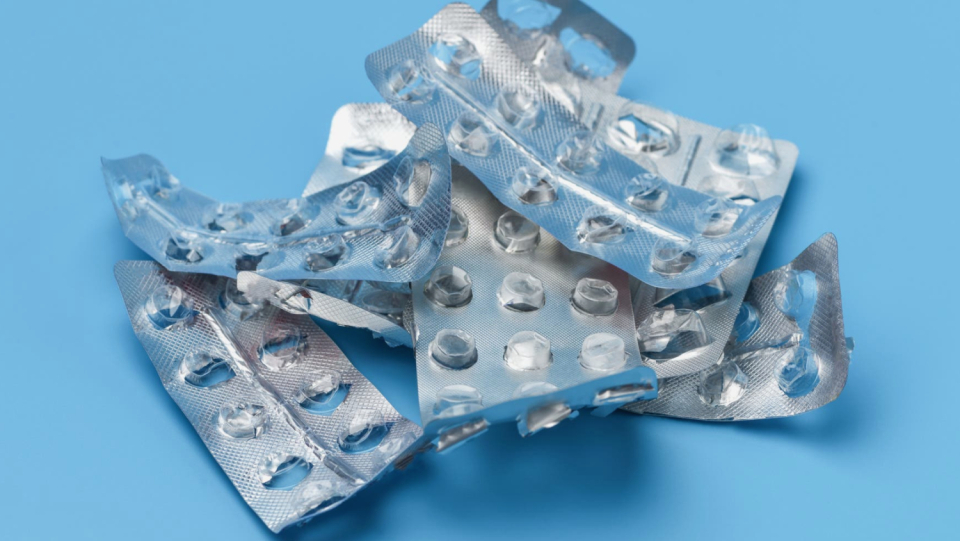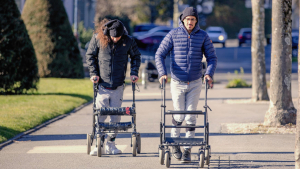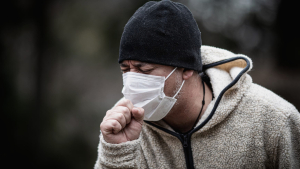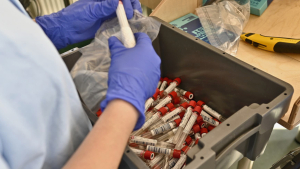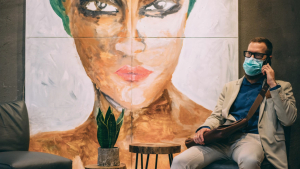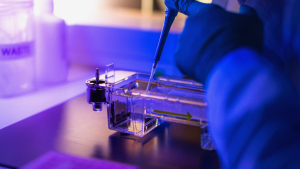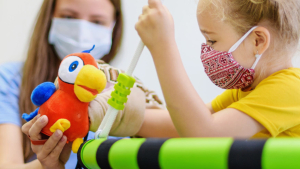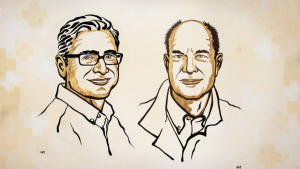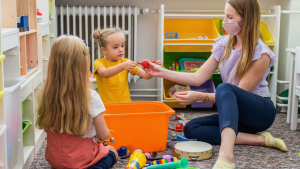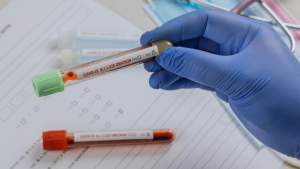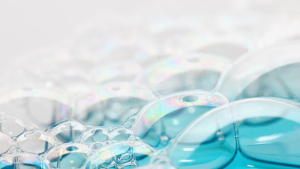The cheeks of red glowing, the eyes glassy, neck and headache; The fever thermometer takes the last doubt - the child has caught a flu infection. Quickly to the pediatrician who prescribes a fever -lowering and analgesic juice. So far so good. But in many places in the pharmacies in the past few weeks: 'We are sorry, we don't.'
"Ibuprofen and paracetamol juices have been sold out since mid-July," writes pharmacist Iris Hundertmark, head of the Bahnhof pharmacy in Weilheim, at the request of manufacturers, wholesalers and international pharmacies are currently unable to deliver. A large order from the manufacturer Ratiopharm had been canceled at short notice and without giving reasons. With this Hundertmark actually wanted to stock up for the upcoming autumn and winter season.
Iris Hundertmark is well networked with other pharmacists and knows: "This is a Germany -wide problem, not a local or regional thing that is often communicated." And it particularly affects children and people with swallowing disorders that are not as easy on alternatives as Can avoid tablets. Nevertheless: In principle, the supply of its customers is secured with pain relievers and fever -lowering medicines, because there are still enough suppositories and tablets, writes hundredmark.
A rise in demand and a fall in supply
The pharmacists North Rhine and Westphalia-Lippe also confirm massive delivery bottlenecks in emulsions with the active ingredients paracetamol and ibuprofen. At the end of July 2022, the Federal Institute for Medicines and Medical Devices (BfArM) published a statement: »In 2022, the need for the affected drugs rose disproportionately. The causes of this have not yet been satisfactorily determined. «However, there are some hypotheses.
"We are currently seeing an accumulation of febrile infections in children and adolescents," writes the Professional Association of Pediatricians and Adolescent Physicians (BVKJ). For this time of year, this is unusual and probably a consequence of the canceled corona measures. Viral infections affect children with a relatively untrained immune system. "Obviously, we can only postpone infections in their occurrence, not completely prevent them," the BVKJ's statement reads.
The figures from the Robert Koch Institute (RKI) confirm this. Almost twice as many people, as in previous years, complain of acute respiratory diseases or flu infections this summer, while the cold season was more or less at the beginning of the year. There is also a summer wave of Corona infections with the particularly contagious omicron variant. However, the accumulation of infections is not the reason for the medication bottlenecks, explains the BVKJ. Because in the typical cold season in winter and spring, such a defect does not regularly exist.
Hospital budget cuts
The Federal Association of German Pharmacists' Associations ABDA sees the cause of delivery bottlenecks rather in the existing cost pressure in the healthcare system. Regulations such as discount contracts of the health insurance companies with pharmaceutical companies ensure that the price level for drugs moves steadily downwards. Generics are particularly affected, i.e. inexpensive imitators of originals whose patent protection has expired.
For example, according to the industry association ProGenerica manufacturers receive the fixed amount of 1.36 euros from the health insurance companies for a bottle of paracetamol juice. At the same time, the costs of energy, logistics or wages are increasing on the producers' side. "In the last twelve months alone, the active ingredient paracetamol has become 70 percent more expensive," ProGenerika wrote in May 2022.
For this reason, manufacturers are increasingly stored by the production of raw materials and drugs to countries that have significantly lower wage costs. Fabrits in China and India are already producing 80 percent of the active ingredients that the European pharmaceutical industry processes. Disturbed delivery routes or regional impairments in the country of production then ensure that raw materials or medicines no longer arrive in Germany. Progenerica reports "There is also a sometimes massive shortage of personnel."
At the same time, manufacturers are gradually withdrawing from production when certain preparations are simply no longer worthwhile. While twelve years ago there were eleven suppliers of paracetamol juices, now the generic drug company Teva Pharmaceuticals with the well-known drug brand Ratiopharm is just down the hall. All this makes the generic drug market an unstable construct and has now led to the fact that fever juices are rare. It is currently impossible to say when the shortage will be resolved, ProGenerika writes on request from
270 drugs are unavailable.
That is not without consequences. As early as 2020, the Hamburg Pharmacist Chamber wrote in a press release that the number of delivery bottlenecks in medication in 2017 to 2019 almost doubled in Germany. Medicine delivery bottlenecks between 2000 and 2018. According to the BfArM 270 medicines, the Bfarm is currently not available. However, the authority points out that only a small fraction of this endangers the care of patients: "For example, the supplies that are currently reported affect ten reports from the currently reported supply." There are equivalent replacement for most affected preparations.
One of the preparations for which this does not apply is Tamoxifen. In January 2022, manufacturers and suppliers reported that the breast cancer therapeutic was only available to a limited extent. Shortly thereafter, the BfArM determined that a critical supply gap would threaten within a few weeks. How did the shortage come about? Again, the BfArM lists a number of reasons for the problem. At the same time, it ordered various measures to prevent a supply shortage. For example, pharmacies should only issue small pack sizes and prescribe to doctors "as needed". This should avoid stockpiling. At the same time, the authorities allowed the import of medicines containing tamoxifen and asked manufacturers to give preference to planned productions.
The federal government, on the whole, managed to continue supplying the population with tamoxifen. But even though the Bfarm initially assumed that the supply was ensured again at the end of April, the list of delivery bottlenecks for the raw material still shows TamoxifenCitrate eight active reports.
Made-at-home fever juice
In order for a bottleneck with paracetamol and ibuprofen-containing juices to be drawn too long, the Bfarm recommends that the pharmacies to set the appropriate suspensions themselves. "In theory, we already have the opportunity to create pain relieving juices," writes Iris Hundertmark. There are corresponding instructions and exact recipes for this. However, according to the pharmacist, even the basic substances for manufacturing were currently missing. In many pharmacies, there is also a lack of time and pharmaceutical specialist staff.
Another point of contention is the cost. "A bottle of paracetamol juice would have to cost about 20 euros," says Sebastian Sokolowski from the Apothekerkammer Westfalen-Lippe. In addition to the basic substances, factors such as working time would also be included. As a rule, the price for 100 milliliters of juice is usually just under five euros. The significantly higher costs are to be borne by the health insurance companies at the request of the federal government.
However, these measures are only reactions to an existing deficiency. The goal must be to discuss basic solutions at the federal and European level, the ABDA demands. This is the only way to change the situation in Germany and the EU in the long term. An important step is to relocate production to Europe. Sebastian Sokolowski also emphasizes this: "If we want to have security of care, it must be adequate to produce raw materials and medicines in Germany or the EU."
The EU has already taken the first steps in this direction. At the end of 2020, she launched a pharmaceutical strategy for Europe, among other things to stabilize the pharmaceutical industry in the EU and to make Europe's healthcare system more independent of international producers again. The pharmaceutical law is also to be updated at the end of 2022.







